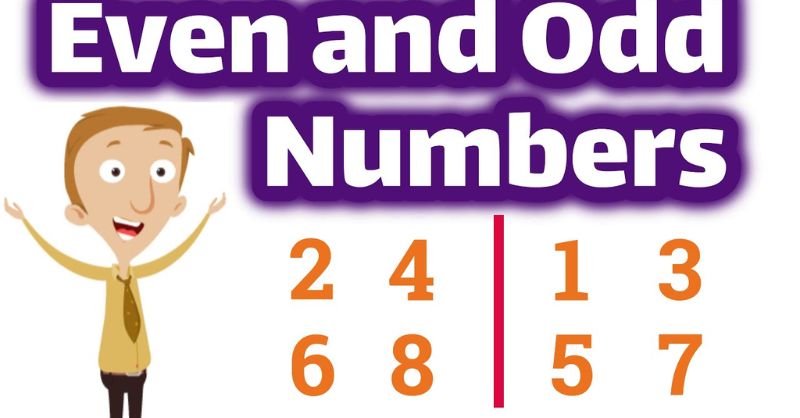A Human resource professional focuses on coordinating employment and training employees. They serve as connections between available job applicants and the employing firms.
Some organizations create a human resources unit under an HR manager’s supervision or administration, whilst others use the outsourcing methods. In this outsourcing method, the human resources unit’s tasks are assigned to an independent human resource consultant outside the walls of the organization.
HR specialists have a variety of essential duties committed into their hands and for this reason, they are required to have top-notch educational background, usually a minimum of bachelor’s degree, and at least a three-year experience.
Have you decided to become a human resources specialist? Below, you’ll see the educational and experiential steps you must take, and you’ll get to see the nature of the profession.
Table of Contents
Becoming a Human Resource Professional: The Educational Requirement
In professions like law and medicine, governments do not mandate individuals to go through certain training in order to be HR professionals. However, to be a relevant human resource specialist, there are general educational criteria that you must meet. What is strictly required is a minimum bachelor’s degree. Without one, it would be difficult to be relevant in the industry. A postgraduate degree is not a priority to become a recognized HR professional, but having such a degree would be an added advantage.
Have you already acquired the first degree? The great news is your HR training and certification can be completed online.
It’s also advantageous that your first degree is gotten in a field that prepares you to be an HR specialist. For example if you want to work in the business sector, you can take a business-related discipline, like a bachelor’s degree in business administration. If you do this, you will cover pertinent topics like accounting, business law, strategic management, business ethics and marketing before you fully venture into HR training.
You can also specifically choose a degree in human resources straight up. For an HR degree, HR topics are covered on a broad level. Topics like communication in business, organizational culture, organizational development, employment law, compensation, and employee development are discussed on a broad level. Training on recruiting, hiring, and employment are also practiced elaborately.
Now, you have your bachelor’s degree and HR certificate. What next?
It is time you develop yourself more in order to boost your competitive advantage among other colleagues. Consider a master’s degree in HR in order to elevate your status among competitors and be better equipped to manage employees.
Areas of Specialization for Human Resources Professional
A degree in human resources opens you up to direct and specific knowledge about the industry, but there are still areas of concentration that can thoroughly help furnish you.
The focal points of these areas may not directly be recruitment and hiring. However, they are still pretty much important in teaching you how to relate with people in the workplace, administer projects, and coordinate affairs. To be a distinguished HR specialist, you can focus on any of the following areas too:
- Industrial psychology
- Government
- Ethics
- Principles of Management
- Training and Development
- Project Management
- Political Science
- Health and Safety Practices
- Business History
- Accounting
- International Business
Being a Certified Human Resource Personnel
To become a professional human resources consultant, people usually get certification from recognized bodies and institutions. However, the human resources field is like a collegiate education in which no grade of certification is required. Certification is needed to boost employability status and land clients, especially for an external or independent human resources consultant. To prove to potential clients that you are qualified for the task and updated on the new problems in the field, you need to present reputable certificates.
The Significance of Staying Updated on New Solutions to Workplace Rising Problems
Formal education will give you leverage at the initial stage of your career as an HR professional. However, it may not be sufficient to make you relevant in the industry. This is because, like every other sphere, the workplace is constantly changing. New problems arise per time, and new solutions are being proffered to tackle them. To understand the new legislation, new practices, and the ever-dynamic demographics, you need to stay educated, knowledgeable, and up-to-date.
A couple of years after receiving certification in HR, you may need to learn new communication trends and specialize in applying new software. This is because the industry keeps growing and getting more digitalized at an exponential rate. Continual learning, enrolment for new certifications, and staying updated are integral for long-term relevance.
The Significance of Having Experience as a Human Resources Professional
Education and certification cannot sufficiently guarantee success in the HR industry. Employers and clients are always concerned about the level of experience an HR executive brings on board.
Being a specialist in any field requires you to have testimonials and portfolios attesting to your expertise. This is also true in the HR field.
To gain experience as an HR, you will need to start from scratch regardless of the level of your certificate. Trying to segregate between high-paying and low-paying jobs at the initial stage may not be a great idea. Just try to get experience and assert your worth by it. You can also enrol for good internships in the HR unit that will open you up to tangible workplace experience. Do not look at the servile nature of the internship. Endure the stress to progress.
Even as an undergraduate, you can enrol in internships or apply for entry-level positions in the field of human resources. Once you gain an entrance, you can start having an experiential dimension of all you have learned. On average, clients and organizations seek three years’ experience level for a professional HR consultant. Therefore, the earlier you enrol, the better.
Duties Expected of an HR Professional
Specialists in human resources are expected to handle a lot of tasks. There is one pattern to describing the roles an HR consultant performs. Two HR consultants can be assigned to distinct roles from each other.
They are expected to handle recruitment and hiring. Additionally, an HR expert should be able to do data analysis, understand organizations’ complexities, and provide solutions to workplace problems like discord among workers and employee-employer issues.
An HR consultant also has to evaluate the performance of employees and monitor their conduct in the workplace per time. As an HR consultant, you can also be assigned to train new hires.
HR consultants also perform advanced tasks and strategic services. For example, an external HR expert may be assigned to help an organization search for a highly qualified employee and unique talents.
Daily, HR consultants are assigned to various administrative tasks, including the use of HR software and technologies. For example, interpretations of policies, consultation on implementing training, or responding to HR questions.
Why Human Resources is a Fulfilling Career
One of the main benefits of being a human resources professional is the freedom the job gives you. As an independent HR consultant, you function as a self-employed entrepreneur. How you coordinate your time is yours and yours alone to determine. Having gained a reputable name for yourself, you can select which client to work for or which job to decline.
Another benefit is that you get to encounter a plethora of people and have a very long network in many areas of human endeavors. Your presence can be felt in many industries since you are charged with hiring various professionals.
You also get recognition from many organizations since you help them solve one of their important problems of filling vacant posts.
Employment is an integral part of human wellbeing, and having a career that places you at the core of something that integral gives your life fulfillment.
The Demerit of Being an HR professional
Being an HR consultant has its own demerits, especially if you happen to be working independently, it is a “no-work-no-pay” career. Independent HR consultants may deny company benefits given to employees, like the absence of paid sick days, vacations, or leave. The job also comes with its own frustrations, especially when complex legal procedures are in place.
Income of HR Consultant
Getting reliable and detailed data on the income of HR consultants is hard. This is because HR professionals can be independent employees. Their salary is always based on negotiations between them and their clients. However, to get an average view of how much HR consultants earn annually, there are some numbers you can look at.
Having studied the statistics of the PayScale of a salary and wages research firm, it is found that an HR consultants rearning are around £53,00 annually in the UK.
Related:
1. Employability Skills: A Guide to Skills Employers Look For
2. 8 Administrative Office Skills: Employers Are Looking For
3. 10 Rights of Employees in the Workplace You Should Have
4. How to Set SMART Goals to advance your Career
Employability of Human Resources Professionals
Many studies have not been conducted on job growth in the field of human resources. This topic still faces limited data, just like assessing HR professionals’ salaries and earnings. However, we still have data from BLS to rely on. According to BLS, human resources job growth was found to rise by 9% in 2014. Compared to all other professions that only recorded 7% job growth, that was a great record. However, according to human resources specialists’ prediction, growth may be measured at a 5% increase by the year 2024.
The question is, “what is the future of human resources professionals”? The future is promising and bright. High-quality HR professionals’ demands will still be relevant in future work systems. There will always be vacant spaces for experts who understand the corporate environments’ complexities.
Looking into the Human Resources job outlook by BLS for 2019, the predicted job growth rate in the human resources field over the next decade is 6% which is faster than average compared to other careers. This means there are high career opportunities in the field. As an employed human resource professional, your career is secure. However, you need to take self-development courses and remain in the field to stay updated and experienced, doing that, your chances of promotion in levels and increments in salary are greater.
Conclusion
Becoming a human resources professional is an excellent career path that is very promising; most especially with a lot more organizations springing up regularly. It comes with interesting tasks, daily issues, professional freedom, and high employability. This career path like any other has various levels, and every level requires the right education and experience. If you follow this path, you can be one of the leading HR professionals in the field, and having these would set you on your way to the top of your career.
FAQs
1. How to become an hr consultant?
Get a bachelor’s degree in HR or a related field. Gain experience through internships or entry-level HR jobs. Develop key skills like communication and problem-solving. Get certified with SHRM-CP or PHR. Keep learning through workshops. Apply for HR consultant roles. Build a strong network in the industry.
2. How to start a career in hr?
Starting a career in HR involves learning about managing people and organizations. One can begin by getting relevant education, gaining practical experience, and improving interpersonal skills.
3. How to become a hr manager uk?
To become an HR manager in the UK, start by getting a bachelor’s degree in HR or a related field. Gain experience through internships or entry-level roles, consider certifications like CIPD, network with professionals, and stay updated on industry trends to advance your career.








 April 01, 2023
April 01, 2023








